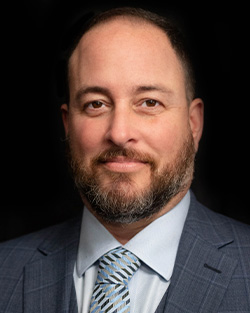August 30, 2022
Private Equity | The Unicorns of Healthcare’s Second Line
- by Sean Weiss, Partner, Vice President of Compliance
Recently, I did a Compliance and Legal Roundtable episode on The Compliance Guy Podcast with Colin Callahan of Flannery/Georgalis and Eric Rubenstein of Advize Healthcare on the ins and outs of Private Equity (PE) and what investors and potential portfolio companies should be aware of to minimize risk and maximize compliance.
Healthcare is a lucrative industry with a lot of opportunities to hit it big. However, it’s also a snake pit waiting for its next unsuspecting victim. For decades physician owners have found themselves in a perpetual cycle of on-again, off-again when it comes to the business of medicine. Enter PE and what many have termed “Unicorns”(a true rarity), only to find out it was the devil’s horns and not an “Alicorn”(an unrealistic belief, greed, and gluttony, propagating fraud and darkness).
It would be easy for me to sit here and villainize those in the PE space, but that would be unfair since I’ve worked with several PE firms over the years to ensure their entrance into a healthcare organization along with the transition that is required for things to run like a well-oiled machine were done in an ethical, compliant, and legal way.
However, not all PEs are created equal, and not all have the same good intentions, and that is where things can go from bad to worse for physicians giving up a piece of or, in some cases, an entire pie. Healthcare is a juggernaut in so many ways, from the structure of payor reimbursements to legal ramifications for engaging in acts that other industries don’t give a second thought about.
Understanding the False Claims Act For PE Firms
Since I’m the “Compliance Guy” and not the “Business Guy,” I focus on the things PE firms got wrong and why. The Department of Justice (DOJ) has taken a keen interest in PE for several reasons. While not many of the things PE Executives do rises to the level of criminality, they do often open the door for civil litigation, including the False Claims Act (FCA). The DOJ continues to take aggressive positions when it comes to PE, and one of the reasons is they have the FCA, which is a powerful tool for prosecutors as it allows them the opportunity to inflict significant financial injury and to exact their “pound of flesh” from those who dare to circumvent the regulations. From regulatory to sub-regulatory guidance, there is enough on paper to protect the government against schemes and artifice created by those who believe they are smarter than investigators and prosecutors.
In one particularly interesting case, United States ex rel. Medrano and Lopez v. Diabetic Care Rx, LLC dba Patient Care America et al., No. 15-CV-62617 (S.D. Fla.), the DOJ focused their attention on Riordan, Lewis & Haden, Inc., and their portfolio company (this was a compounding pharmacy). For the DOJ, it was a clear indication that the level of exposure/risk under the FCA was real. In this case, the DOJ alleged that in an attempt to increase the company’s profits amidst declining reimbursement for nutritional therapies for End Stage Renal Disease (ESRD) patients, caused the firm and two (2) of its partners who were at the time serving as officers and/or directors of Patient Care America, allegedly directed its entry into the business of non-sterile compounding of topical creams for pain management. The company and/or the individuals realized that based on higher rates of reimbursement offered by TRICARE, the downside of the nutritional therapy could be turned around through this compounding pharmacy. The DOJ alleged the company and the individuals developed and implemented the company’s business strategy around maximizing TRICARE reimbursement through illegal kickbacks and beneficiary inducements.
What is fascinating about this case is that the firm drove Patient Care America’s business model, ignoring warnings from counsel that the referral practices they were engaging in could be illegal. The PE Firm settled its FCA case for $21 million based on claims submitted by its health care portfolio company.
This is just one of several recent cases involving PE that should cause executives and/or directors of these firms to sit up and pay close attention to what the government is focusing on and where they are scoring massive settlements. No one can deny that the PE industry in health care is booming. Just looking at the period from 2015 to 2019, the number of deals increased by approximately 50 percent going from just under $40 billion to just under $80 billion. During the pandemic, PE engagement rose a staggering 21 percent. With this infusion of capital and creative structures for investors controlling the practice of medicine comes the government’s increased appetite for investigating these ventures. Recognize that the corporate practice of medicine is illegal in almost all states in the U.S., but there are provisions where states do provide for professional medical corporations. Again, the exceptions vary from state to state.
Going back to the FCA for just a moment, you have to keep in mind that 31 U.S.C. §§ 3729-3733 provides that any person who knowingly submits or causes false claims to be submitted to the government, or makes a false record or statement to get a claim paid by the government, is liable for triple the government’s actual damages plus a penalty for each claim, which is linked to inflation, i.e., anywhere from $11,665 to $23,331. When PE companies and/or their managers originate or perpetuate growth in healthcare or other highly regulated companies or receive credit for growing revenues or values through non-compliant conduct, these activities create liability under the FCA. The aforementioned case is a prime example.
Mitigation Strategies for PE Firms
One area where PE firms can begin the mitigation process is in the pre-investment due diligence. It is important for PE firms to conduct comprehensive pre-acquisition due diligence by health care compliance and legal professionals who understand the ins and outs of the regulatory landscape. Additionally, PE firms need to determine the level of daily operational control and monitor it carefully to ensure they are not overstepping. Remember, the premise of PE is to identify undervalued opportunities, invest and then make their money on the backend either in another sale at a higher rate or by breaking apart the pieces and selling them off that way. PE firms need to establish airtight controls through policies and procedures that demonstrate a “Culture of Compliance” within not only the PE Firm but how it extends to their portfolio companies. Ignoring advice from legal counsel is never advised, whether it’s at the due diligence stage or throughout the ownership of the company(s).
In wrapping up this article, the following are a few takeaways for private equity firms:
- Pre-acquisition Due Diligence: Engage competent compliance professionals and legal experts in the field of health care to ensure no stone is left unturned. This is a complicated industry with more regulations than just about any other. Don’t trip over dollars to pick up dimes when selecting the experts to assist you.
- Involvement in Day-to-Day Operations: Understanding your risk by avoiding overstepping or controlling the practice of medicine is a must. Avoid creating incentives and or referral issues for portfolio company leadership that could run afoul of the antikickback statute or other laws such as EKRA and/or Stark.
- Compliance Activities: You must create “a culture of compliance” that trickles down to the portfolio companies to provide anti-fraud and abuse training in addition to monitoring the overall compliance of the organization. Make sure that members of your board of directors for the PE Firm or the portfolio company(s) understand their obligations as responsible stewards and that they cannot have an ostrich head-in-the-sand approach to things in health care. Make sure they understand the corporate compliance program, applicable policies, and procedures and are an active participant in ongoing compliance training.
At the end of the day, PE is not the enemy, they simply need to have the right people guiding them to ensure they avoid making bad decisions or questionable decisions whereby the government can create a narrative to fit potential violation of one of the many Acts, Laws, Regulations, or Statutes that govern this industry.
By Sean M. Weiss, Partner, Vice President, and Chief Compliance Officer

Sean M. Weiss is a Partner and Chief Compliance Officer for DoctorsManagement, LLC. Sean provides strategic litigation defense services and a host of regulatory compliance services for clients nationally.
Learn more about Sean’s expertise at www.thecomplianceguy.com or contact Sean directly at DoctorsManagement (800) 635-4040.
DoctorsManagement, LLC | www.doctorsmanagement.com


























